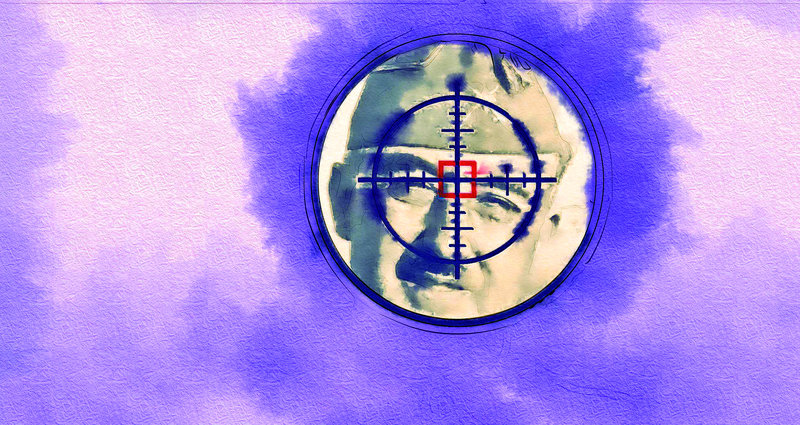Long-term resident
KILLING FRANCO
Literary awards, from the Nobel on down, can be erratic to say the least. One year they give it to a work of genius (or to the genius in person); the next, to a book or an author that everybody will have forgotten about within less than half a decade. The Sant Jordi prize – one of the three or four most prestigious awards for Catalan language literature – is no exception. Sometimes it is bestowed on masterpieces, be they major or minor, and at other times you wonder what the judges were thinking (or drinking). Happily, the most recent Sant Jordi went to an exceptionally original novel: ’Jo sóc aquell que va matar Franco’ (I’m The One That Killed Franco) by Joan-Lluís Lluís. There is no other way of explaining why this novel - which has now become that rarest of things, a literary best-seller - has such an uncanny impact on the reader, without laying on the spoilers with a trowel. Not that this will really spoil much, given that the title itself tells us how the story ends. The key to the novel’s attraction lies rather in its counter-factual premise: that instead of remaining neutral in 1939, Franco would have decided to throw in his lot with Hitler and Mussolini, in exchange for control over certain North African territories (a real, historically documented proposal from the Caudillo which Hitler in fact rejected) as well as the annexation of French Catalonia (a proposal invented by the author). Caught up in the ensuing maelstrom is a one-eyed linguistic corrector of Catalan who ends up as a Morse code operator working for the anti-Spanish resistance in this same French Catalonia (not coincidentally, Lluís’s birthplace and lifelong home, known to many Catalans as Catalunya Nord). In 1945, the Francoist regime collapses along with the Nazi and Fascist ones, and Franco finds himself holed up in a tiny village after a failed attempt to flee to neutral Andorra (there is a graphic description of Franco the refugee in crumpled, cheap civilian clothes, his head covered by his Catalan captors to conceal his identity from would-be Fascist rescuers). After several twists of fate, the linguistic corrector ends up putting a bullet in the Caudillo’s head. But such a perfunctory plot summary gives little idea of the force of a book which makes the defeat of Franco’s regime and the death of its leader so perfectly believable. A force similar to that of another great what-if novel about the Second World War, Philip K. Dick’s ’The Man In The High Castle’, with the difference that whereas Dick describes a nightmare scenario in which the Axis forces win WWII, Lluís describes one which many if not all readers of the book will find themselves rooting for or even dearly wishing that it had come true. As it is, we have things as they stand today: a Spain in which the bodies of thousands of extra-judicially executed people have been allowed to rot anonymously in unmarked graves for the last 80 years; in which a hideously huge mausoleum continues to function as a shrine for admirers of Franco and his Fascist ideologue (but not for the Republican slave labourers also buried there); and in which the Fundación Nacional Francisco Franco, dedicated to the ’promotion of the life and works’ of guess who, has received several state subsidies and refuses to allow all but far-right historians to consult its archive. Joan-Lluís Lluís’s novel shows us what a craftily administered dose of imagination can do to soothe, at least for a while, the pain of the past, even one which continues to well and truly shaft us.
opinion


